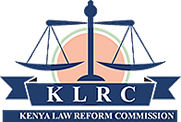2.1 Establishment of the Commission
The Kenya Law Reform Commission is established under section 4 of the Kenya Law Reform Commission Act. It consists of the Chairperson and six Commissioners who are appointed in accordance with section 11 of the said Act. The Act provides that at its first meeting, the Commission is required to elect a Vice-Chairperson from amongst its membership.
2.2 The Functions of the Commission
Section 6 outlines the functions and powers of the Kenya Law Reform Commission. The functions include—
(a) keep under review all the law and recommend its reform to ensure—
(i) that the law conforms to the letter and spirit of the Constitution;
(ii) that the law systematically develops in compliance with the values and principles enshrined in the Constitution;
(iii) that the law is, among others, consistent, harmonized, just, simple, accessible, modern and cost-effective in application;
(iv) the respect for and observance of treaty obligations in relation to international instruments that constitute part of the law of Kenya by virtue of Article 2(5) and (6) of the Constitution;
(v) keep the public informed of review or proposed reviews of any laws; and
(vi) keep an updated date of all laws passed and reviewed by Parliament;
(b) work with the Attorney-General and the Commission for the Implementation of the Constitution in preparing for tabling, in Parliament, the legislation and administrative procedures required to implement the Constitution;
(c) provide advice technical assistance and information to the national and county governments with regard to the reform or amendment of a branch of the law;
(d) upon request or on its own motion, undertake research and comparative studies relating to law reform;
(e) formulate and implement programmes, plans and actions for the effective reform of laws and administrative procedures at national and county government levels;
(f) consult and collaborate with State and non-State organs, departments or agencies in the formulation of legislation to give effect to the social, economic and political policies for the time being in force;
(g) formulate, by means of draft Bills or otherwise, any proposals for reform of national or county government legislation;
(h) upon request or on its own motion, advise the national or county governments on the review and reform of their legislation;
(i) undertake public education on matters relating to law reform; and
(j) perform such other functions as may be prescribed by the Constitution, this Act or any other written law.
